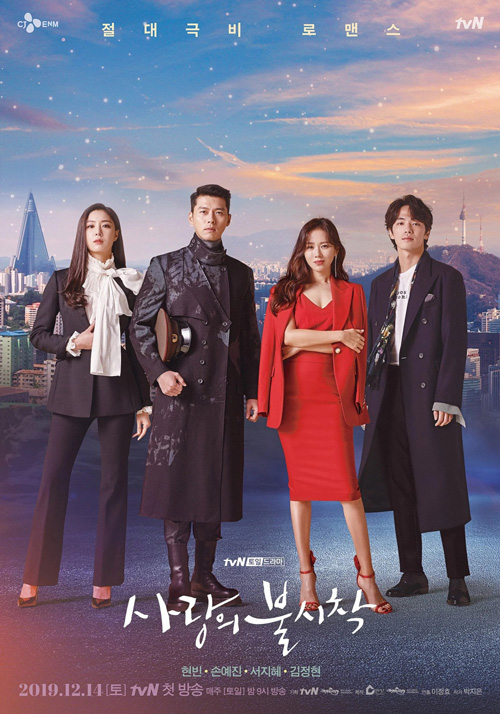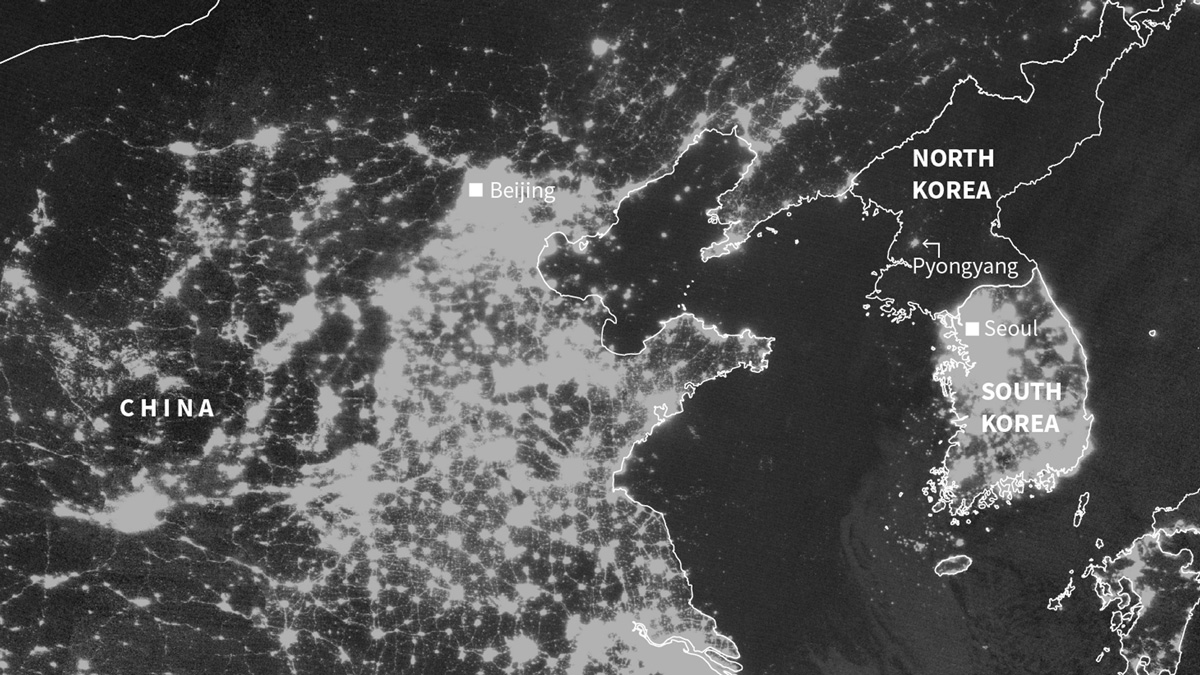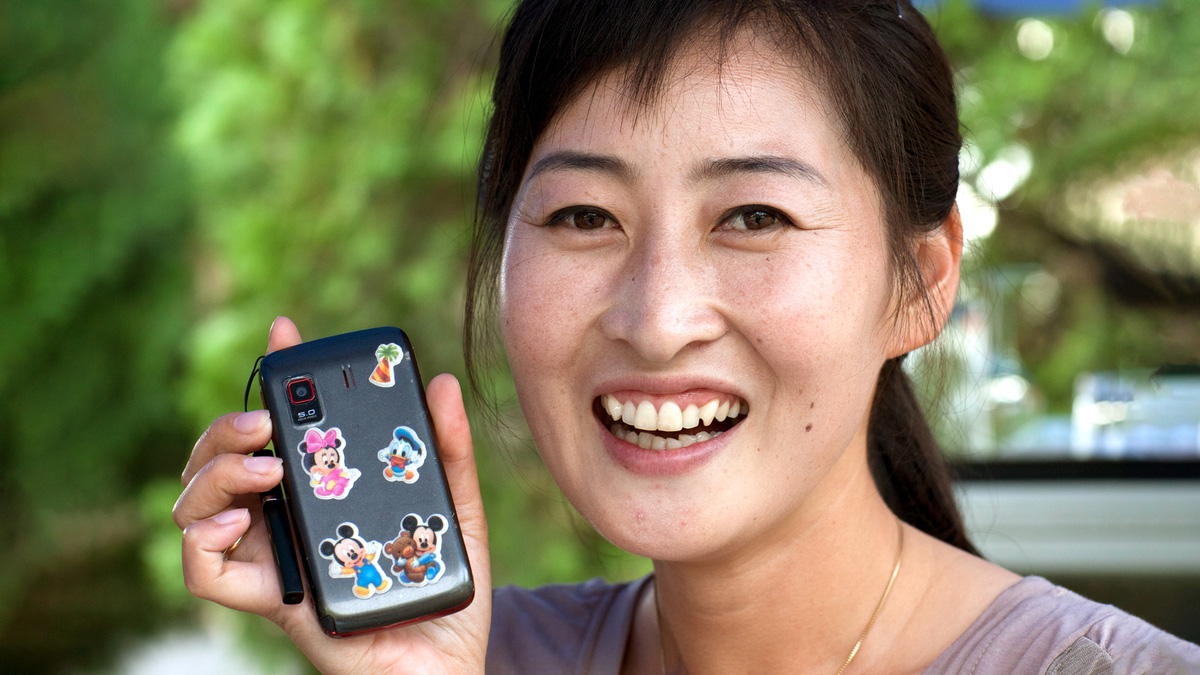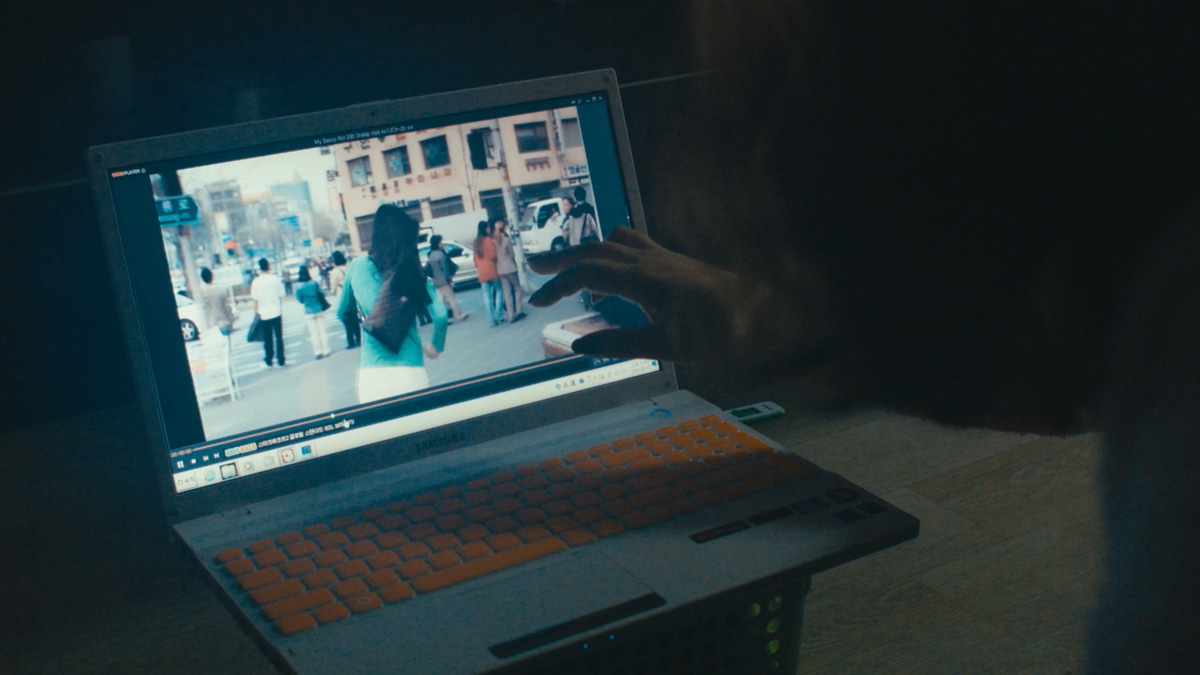New Beginnings: A Conversation with Hae Jung & Sue

Hae Jung is very familiar with loss and grief: Her mother passed away when she was a teenager, after she grew up and got married, her husband died, and three years after that, her father starved to death. Life became unbearably difficult for Hae Jung after the death of her father. With no family left and no resources to survive on, she escaped to China in search of a better life.
Hae Jung was arrested twice during her 14 years in China, but was able to evade repatriation on both occasions. Still, she lived with constant anxiety that she would be caught and sent back, and her Chinese-born daughter, Sue, grew up fearing for her mother’s life.
Seeing the devastating effects that living in hiding had on her daughter, she escaped with Sue to South Korea. Together, they made it safely through LiNK’s networks, a journey which was funded by UT Austin's Rescue Team, just before Sue’s 8th birthday.
Now safely resettled in South Korea, Sue is attending school and Hae Jung is working as a salesperson at a mobile phone company. Hae Jung also volunteers at a local welfare center to aid people with disabilities by cooking for them and cleaning their houses and helps out at her daughter’s school as a crossing guard with other parents.
Our resettlement coordinators, Jihyun and Anna, recently met up with Hae Jung and Sue to see how they’ve been doing.

While cutting up some fruit to serve, Hae Jung began to talk about what it's been like to live in freedom...
Hae Jung: Even nowadays, more than two years after I resettled in South Korea, I still pinch myself to see if this is real—that I’m free, that I live in South Korea. Although there are difficulties here, too, especially for people like me who still don’t know a lot about this society, I always try to think that I can overcome those difficulties. If I already think it is impossible to overcome, I can never overcome anything.

Jihyun: What advice would you give to a friend who just arrived in ROK?
Hae Jung: Try to learn as much technology as possible to facilitate your adjustment to this society (especially knowing how to use computers and the Internet is so necessary). You have to experience new things on your own instead of only listening to other people’s experiences. And, go to college if you are young enough.
No matter where you go, you will always face difficulties, conflicts with other people due to different cultures and customs. Some people will look down on you and you will make mistakes because you are not used to this society. Although South Koreans don’t have to adjust to this society the way resettled North Koreans do, they also deal with similar things in life. We are not that different. Try to find people you can open your heart to, share your struggles with, and laugh about the struggles with them.
Don’t be afraid of difficult things or interpersonal conflicts. Try to remember what you went through in North Korea, where you were not treated as human beings, then it will give you different perspectives on how to approach difficulties you may have.

Jihyun gave Sue a wooden pen, which she was very excited to receive, with the UT Austin crest carved into it. The pen is a gift from Julian, a former member of the UT Austin Rescue Team who now interns at LiNK HQ. Hae Jung and Sue have met Julian twice in South Korea.

Jihyun showed Hae Jung and Sue a video of Julian saying hi and telling them about what he’s doing at LiNK HQ as an intern. Hae Jung was so happy to see Julian that she actually waved and said "Hi!” twice while watching it.

Jihyun to Sue: How do you like school these days?
Sue: It’s alway fun!
Jihyun: What is your favorite subject?
Sue: “Math”

Jihyun to Sue: What are you thankful for this year?
Sue: What do you mean?
Jihyun: Well, for example, you could be thankful because you had a summer break this year, haha. You also saw Julian from the UT Austin Rescue Team again and you got to study with your tutor through our ETCE Program earlier this year. And...ah, your fractured wrist healed well and fast, too! So is there anything you are particularly thankful for, which happened this year?
Sue: “Aren’t we thankful for just the fact that we have life?”

Jihyun to Hae Jung: How do you and Sue spend time together?
Hae Jung: I try to spend as much time as possible with my daughter. We often go to the park in our apartment complex to have mom and daughter time by walking and exercising together. Sometimes we do karaoke, too. When I went to karaoke with my daughter for the first time, I was surprised to see her sing and dance to a lot of South Korean pop songs. I was like, ‘when did you learn all that?’. I realized that kids adjust faster than adults. You know, she already has a South Korean accent.

Jihyun: What kind of difficulties did you face in North Korea?
Hae Jung: Things were so difficult during the famine in the 90s, especially after the public distribution system collapsed in 1994. One time, after starving for so many days, my father and I started moving around to different towns with salt and matches to find tree roots and bark. Whenever we found tree roots and bark, we cooked them with salt and ate them. We had to do that to survive until wild, edible greens started growing in June, so we could eat the greens instead of tree roots and bark. In July and August, I got to save some greens so I could sell them at the illegal marketplaces. However, sometimes my greens even got taken away by the police whenever they cracked down on the illegal marketplaces.
Very sadly, during the famine, I lost many of my family members. I still remember the very moment when I saw my father dying of starvation while crying for corn soup and tofu that he really wanted to eat. I was also very close to starving to death. I weighed as little as 55 pounds, which was not even a half of my normal weight of 119 pounds. If my friend hadn’t brought me some kernels, I would’ve died of starvation like my father.
In order to survive during the terrible famine, the people, including myself, started eating mice, but they were so hard to catch. You might think it sounds so gross, but when you are starving for so long, your mind gets so focused on finding anything edible—and how you can skin and cook them. Whenever I caught a mouse and cooked it, it smelled strong so people living on the same block noticed the smell and could tell someone near them was cooking mouse meat. Starving kids near my house were crying because they smelled it. I tried to share the meat with those kids as much as possible, but sometimes I couldn’t because I was starving, too, and didn’t have enough to share.
Jihyun: What are some difficulties you’ve faced since resettling?
Hae Jung: When I first came to South Korea, I had a hard time understanding expressions and words that South Koreans use. Because of that, I had difficulty communicating with people at work when I was working as a caretaker and waitress.

Jihyun: What is it like living in freedom in South Korea?
Hae Jung: It is very convenient thanks to more technology. Before I left North Korea in the late 90s, in my town there was only one TV in every five households and the TV had only one channel. Now in South Korea, however, every house has at least one TV and it has so many different channels. Also, almost every household has a computer and uses the Internet.
I think the Internet makes my life so much easier. If I want to listen to my favorite songs or look up information, I just have to move my fingers.
I feel so much freedom in many parts of my life. I love that people don’t bother you as long as you don’t bother them or break the law. I also think that the freedom makes people not only more equal to one another but also more friendly to each other.
I love being able to learn new things here.
When I got my ID, after coming to South Korea, I was happy. I felt like I had become a human being again (because I lived illegally in China for so long, always hiding and being afraid of getting caught). When I was in North Korea and China, I felt like I was an animal like a dog or a pig. Since I live as a human being here with freedom, I am proud of myself and even compliment myself for living like a human, which I longed for in North Korea and China.
Freedom also enables me to be healthy since I don’t have to do a lot of physically hard labor that a lot of people still do in North Korea these days due to lack of technology and infrastructure.

Jihyun: What hopes do you have for Sue?
Hae Jung: Of course, like any other mom in the world, I want her to be successful in life. I hope she will go to a good university, study overseas, get a good job, and prosper in many ways. I know that is just my wish. It is out of my control and it depends on how much she tries/her effort.
The most important thing for me is that Sue will grow well—healthy and happy. I want to be there for my daughter whenever she needs me. I want to be positive to her all the time so I can be a good role model and influence her to also take on a positive outlook on life.
Also I want to continue telling her to appreciate what she has and to care for others who are underprivileged and have disabilities. I want her to know that we have to give back to the society because we’ve received so much from people like LiNK’s staff and supporters.
You can help more North Korean refugees escape China and resettle in a safe country here.
Foreign Media in North Korea - How Kpop is Challenging the Regime
Movies, TV shows, and music hold power. They’re a way for us to connect through common experiences, reckon with different sides of humanity, and revel in the beauty of being here at all. They transport us to another time and place- perhaps one of our imaginations- and most importantly, allow us to dream and imagine a limitless future.

In recent years, South Korean media and entertainment has gained international recognition. People like Hyun Bin and Son Yejin, the stars of popular Korean drama Crash Landing on You, have become household names, while Parasite swept the 2020 Academy Awards and music from K-pop groups like BTS are charting globally.
Meanwhile, just across the border, North Korea remains one of the most closed societies in the world. Yet even in the “hermit kingdom,” foreign media is accelerating empowerment of the people and change within the country!
Forced Isolation and the Regime’s Information Monopoly
The North Korean government has maintained power for decades through a system of imposed isolation, relentless indoctrination, and brutal repression. A complete monopoly on information and ideas within the country has been key- outside media threatens to challenge the legitimacy of their propaganda, and by extension, their control.
The 2014 United Nations Commission of Inquiry on Human Rights in North Korea reported an almost complete denial of the right to freedom of thought, conscience, and religion as well as of the rights to freedom of speech, opinion, expression, and association.

The regime employs a range of strategies to enforce information control:
- Restricting movement across borders and within the country
- Random house searches
- Severe punishment, including public executions, to deter foreign media consumption and sharing
- Sophisticated digital surveillance
- Jamming phone signals and locating users through signal triangulation
- Mobile OS file signature system that only permits government-approved apps and files
The Spread of Foreign Media
Despite this isolation and unparalleled internal restrictions, the North Korean people have been quietly changing their country from within, including through foreign media access. Through market activity and the movement of people and goods across the Chinese border, they have forced the gradual opening up of their society. Movies and music are smuggled into the country on USBs, SD and MicroSD cards, and small portable media players, offering illicit access to information from the outside world.
With lights off and windows shuttered, North Koreans will watch foreign media despite the risks. If all else fails, bribes are a way for people to reduce punishment if caught. Most North Korean police and government officials rely on bribes to survive, and some defectors complain that they are actually the biggest consumers of foreign media because they confiscate so much.

Information Technology in North Korea
Within North Korea, a broad range of information technologies are available, although they should be registered with authorities. Laptops and computers officially run on a government operating system, Red Star OS, while the North Korean intranet, Kwangmyong, is air-gapped from the internet and heavily surveilled. However, in practice, many North Koreans have non-networked devices used for games, editing software, watching videos, and to copy, delete and transfer media on removable devices.
Mobile phones are also common with approximately 6 million on the North Korean network, meaning roughly 1 in 4 people have one. These North Korean phones generally cannot make international calls and the operating system limits users to approved state media (programs have been developed to bypass this security). On the other hand, smuggled Chinese phones can be used in border regions on the Chinese network. These have been crucial for staying in touch with relatives who have escaped or defected, who often send back money and information from the outside world.

Radios are the only channel of foreign media and news available real-time across the country. While they should officially be registered and fixed to North Korean stations, it is relatively easy to tamper with radio sets to pick up foreign broadcasts. In border regions, some TVs can also pick up live programming from South Korea and China. Traditionally, TVs were connected to DVD players, but newer LCD televisions also have direct USB input ports.
How Foreign Media Changes Perceptions
Among foreign media, entertainment from South Korea is particularly attractive, produced in the same base language by people with the same ancestry. They contain glimpses of rich and free realities just across the border. In comparison, domestic North Korean media seems old-fashioned and disingenuous, designed to reinforce the regime’s ideologies.
As North Koreans learn more about life, freedom and prosperity in the outside world, and their own relative poverty, the regime’s ideology and control are eroded.

“At first you see the cars, apartment buildings, and markets and you think it must be a movie set. But the more you watch, there’s no way it can be just a set. If you watch one or two [movies] it always raises these doubts, and if you keep watching you know for sure. You realize how well South Koreans and other foreigners live.”
– Danbi, escaped North Korea in 2011
Empowered by foreign media, North Koreans are exploring their creativity and potential through everyday acts of resistance- using South Korean slang, copying fashion styles, and sharing pop culture references. In this culture war, Kim Jong-un has called for crackdowns on "unsavory, individualistic, anti-socialist behavior" among young people to restrict freedom of expression.
Foreign media also facilitates shared acts of resistance. People will swap USB devices with trusted friends and neighbors, increasing confidence in one another through a symmetrical transaction. Some people may also watch and discuss movies and shows together, increasing the media’s subversive influence and creating social networks.
The Regime’s Response
During the pandemic, we’ve seen unprecedented levels of isolation and restrictions, closing off the country more than ever before. To buttress control, Kim Jong Un has simultaneously increased crackdowns and punishments on foreign media consumption. In December 2020, the “anti-reactionary thought law” made watching foreign media punishable by 15 years in a political prison camp.
While the situation is harrowing, the government’s extreme response underscores the power of foreign media. The regime recognizes that social changes driven by North Korean people are a threat to their authority and control in the long term.
Accelerating Foreign Media Access and Change
Moving forward, increasing access to outside information is one of the most effective ways to help the North Korean people and bring forward change.
Information and technology support for North Korean people has historically been an under-utilized and under-invested strategy. LiNK Labs is our area of work focused on this opportunity- we’re developing technologies, networks, and content to empower North Korean people with access to information and ideas from the outside world.




